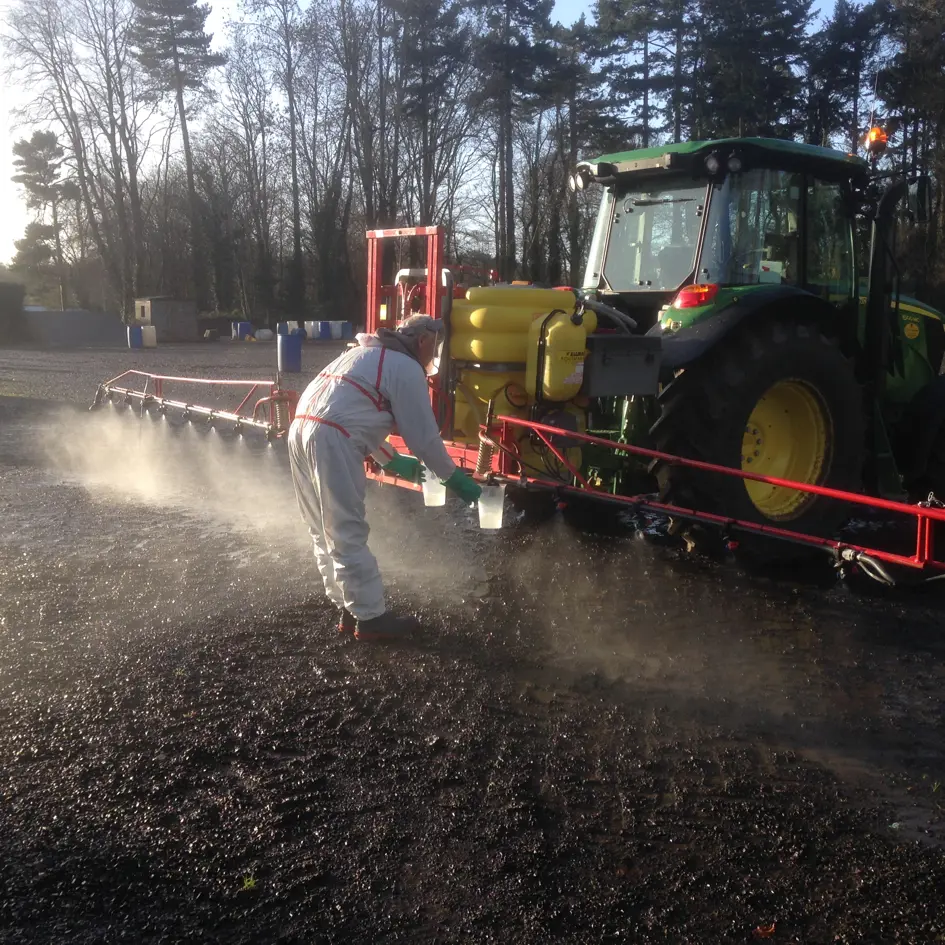
NI Water actively promotes best practice when using pesticides to help protect drinking water. It is vital that pesticides are handled, applied and disposed of in ways that minimise the risk of contamination to water bodies.
There are some key initiatives and guidelines everyone can follow to help keep waterways clean, including:
Expert Guidance and Adherence to Codes of Practice: Pesticide users are encouraged to seek advice from registered agronomists and to follow established codes of practice for using plant protection products. This guidance helps ensure that every stage from storage and handling to application is managed to prevent chemicals from entering water bodies.
Safe Storage, Handling, and Equipment Maintenance: Best practices stress the importance of storing pesticides securely to avoid leaks or spills that could reach nearby water sources. Proper handling includes routinely maintaining and calibrating spraying equipment. These measures not only ensure the correct dosage is applied but also substantially reduce the chances of pesticide drift or run-off that can lead to water contamination.
Intelligent Application and Weather Considerations: To limit the potential for pesticides to be washed into watercourses, NI Water promotes the careful timing of chemical applications. For example, applying pesticides well in advance of heavy rainfall can drastically reduce the risk of runoff. Avoid applying pesticides on windy days which will help minimize drift during application, safeguarding both water quality and aquatic life.
Proper Disposal of Containers and Residual Chemicals: It is crucial that empty pesticide containers and any residual chemicals are disposed of safely through approved waste contractors. Such practices can help prevent even minor residues from reaching rivers and lakes.
NI Water catchment officer Peter Quinn said: “Protecting water quality is not just about compliance - it’s about preserving the natural environment, ensuring safe drinking water, and maintaining Northern Ireland’s reputation for sustainable farming. Farmers play a crucial role in keeping our waterways clean and NI Water is committed to working alongside the agricultural community to provide guidance and support.
Let’s work together to protect our water, safeguard our environment, and secure the future of farming.”
Ends
Notes to editors:
NI Water’s Sustainable Catchment Area Management Practice (SCaMP) team work hard to protect and enhance raw water quality and reliability in our drinking water catchments through sustainable catchment-based solutions that focus on protecting and enhancing the natural environment. The NI Water SCaMP team uses natural processes to enhance raw water quality before it is formally cleaned for drinking. Further information about NI Water’s SCaMP team can be found online at www.niwater.com/sustainable-development/scampni/
Media enquiries to the NI Water Press Office via email to press.office@niwater.com

